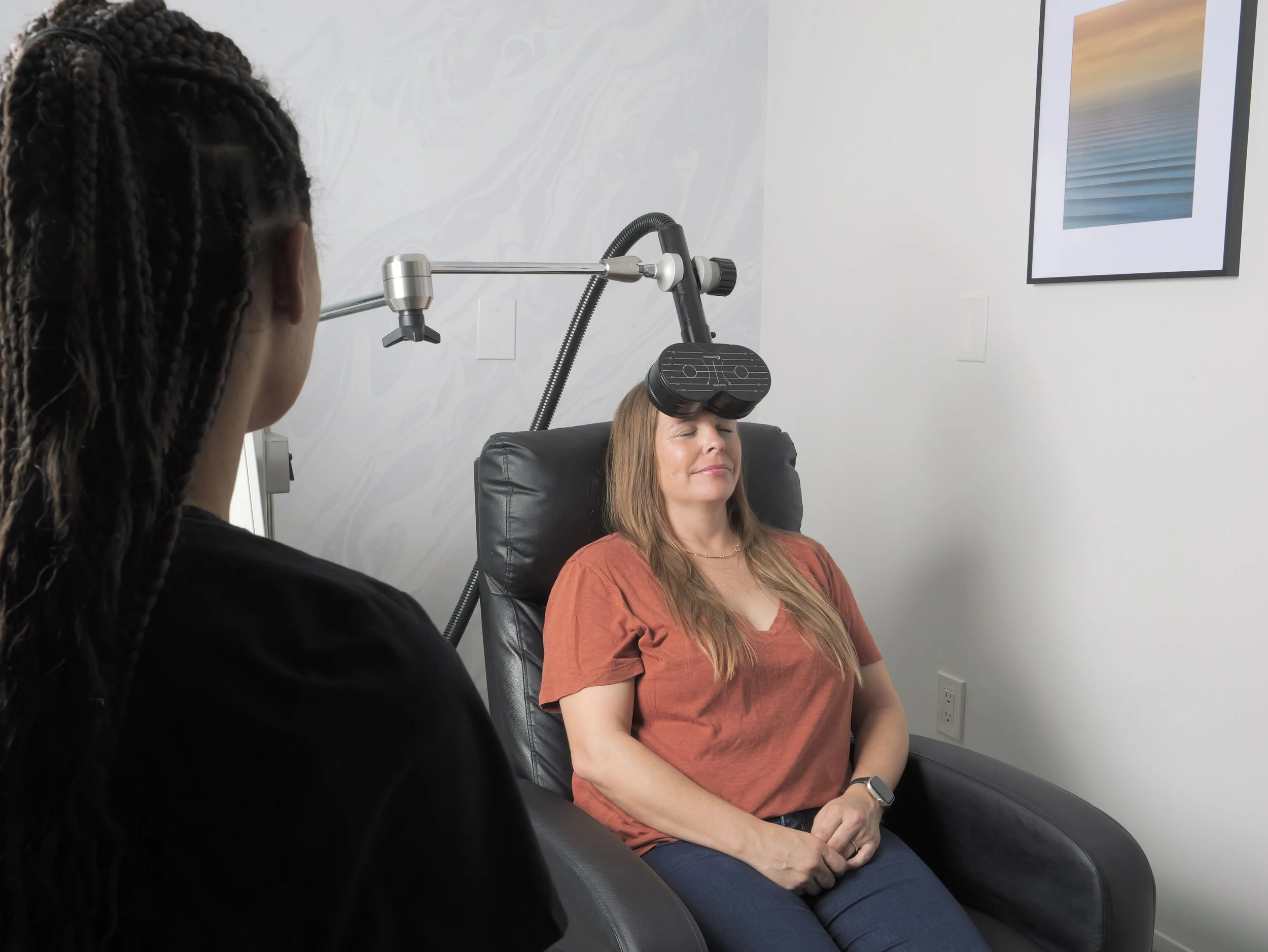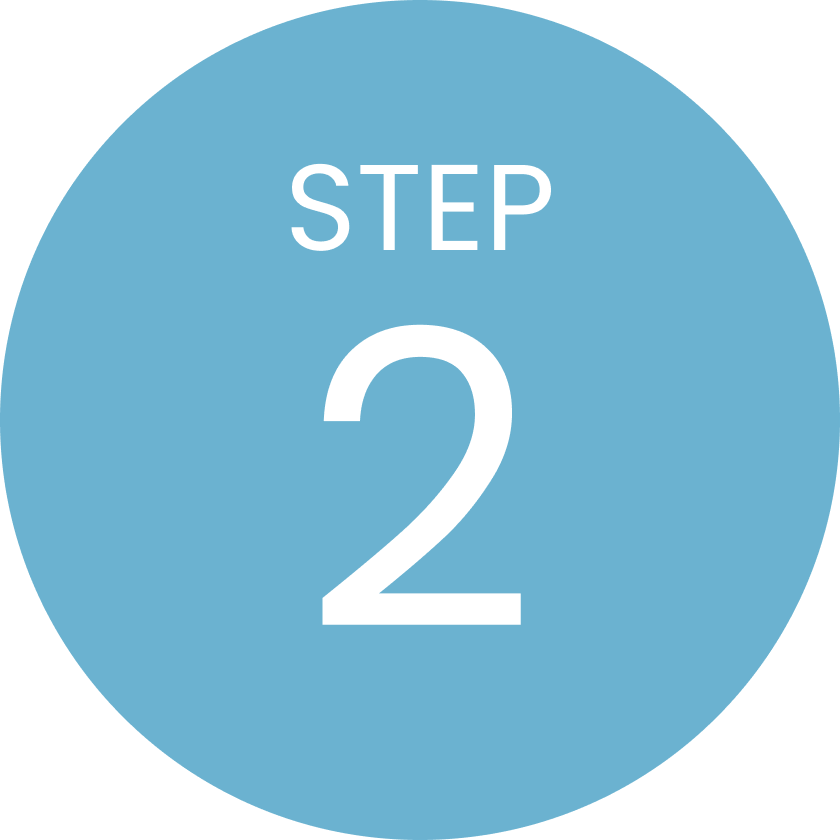
Be a part of finding a treatment for PTSD.
Scroll down for relevant information to participate in the trial, see if you qualify for pre-screening and contact our intake team.
Texas A&M and Wave Neuroscience are conducting a clinical trial to investigate whether MeRT improves symptoms associated with PTSD.
If you are experiencing symptoms of Post-Traumatic Stress Disorder (PTSD) lasting 6 months or longer, you may be eligible to participate.
Symptoms may include: Intrusive thoughts, feelings of depression or sadness, insomnia, anxiety, alterations of cognition/memory or irritability.
This is a randomized controlled trial. If enrolled, you have a 50/50 chance of being assigned to the placebo (“sham”) or active group. If you are assigned to the placebo or “sham” group and complete 80% of the assigned study treatments and participate fully in data collection you will be offered active treatment as long as the doctor feels it is safe for you.
What is MeRT®?
For the treatment of PTSD in adults, Magnetic eResonance Therapy or (MeRT) is an investigational treatment that doesn't use drugs. MeRT innovatively uses a person's brain wave activity, called EEG, to create their personalized treatment protocol for transcranial magnetic stimulation (TMS).
TMS has been cleared by the FDA for treatment-resistant Major Depressive Disorder, Obsessive Compulsive Disorder, and Nicotine Cessation. MeRT is now being used in an FDA-IDE pivotal randomized, controlled, multicenter, clinical trial to test its efficacy and safety in PTSD patients.
Some key indicators that you may qualify for this study:
✓ 18-65 years old
✓ Experiencing symptoms of PTSD for the past 6 months
✓ No significant medical disorders
✓ Not using neurostimulation devices
✓ No iron-containing metal implants inside your head (ex: Surgical aneurysm clip, surgical staple, shunt) or medical devices that could be affected by a magnetic field (ex: implantable cardiac defibrillator, pace maker, deep brain stimulator)
Am I eligible?
What will you be asked to do in the trial?
Prescreening
If you are interested in being a part of the trial, click on the link below and answer a few simple questions to see if you pre-qualify.
If you do, you will be asked to provide your name and contact information. You can either make an appointment for a pre-screening call or ask that our intake coordinator reach out to you with next steps.
At the appointment we will ask you questions about your health to see if you still pre-qualify.
Informed Consent
The doctor or study coordinator will explain the trial to you and all the procedures you will go through. You will be able to ask questions.
If you agree to participate in the trial, you will sign the informed consent form.
Screening Visit (can take place over three weeks)
To see if you are a good candidate for the trial, you will be asked questions about your medical history and any medications you’re taking, answer some questionnaires and have your vital signs taken.
This visit can be in-person at the doctor’s office or virtual.
EEG Recording
You will have a headset that has sensors attached to the inside placed on your head. You will then sit with your eyes closed in a darkened room for 10-minutes while your brainwaves are recorded.
This will give us an understanding of your brain’s activity.
Randomization of Investigational Treatment
You will be randomly assigned to Personalized Magnetic Stimulation or Placebo (“Sham”) treatment.
Investigational treatment visits (5 - 6 weeks)
Over 5 -6 weeks you will come to the clinic for 25 sessions – about 5 sessions per week. Each treatment will take about 45-minutes.
You will also be asked about any medications you’re taking, how your health has been and have your vital signs taken.
These visits are in-person so you must be able to come into the clinic.
Follow-up Visits
After you complete the treatment sessions you will be asked to come in for up to two follow-up visits.
During these visits, you will be asked questions about your medical history, any medications you’re taking, and how your health has been. You will answer some questionnaires and have your vital signs taken.
If you received the placebo treatment and completed 80% of the treatments (20 treatments), and you provide information on your health and medications, and the doctor feels it is safe for you, you will be offered active treatment.
Additional active study treatments (optional) for placebo (“sham”) treatment group
7 Convenient Study Locations
Texas A&M Research Center
Site W001
4716 Alliance Blvd.
Pavilion 2, Suite 260
Plano, TX 75093
Study Coordinator
214-774-2290
dallas.coordinator@mertptsdtrial.com
Center for Interventional Pain and Spine
Site W003
931 E Haverford Rd. Suite 202
Bryn Mawr, PA, 19010
Study Coordinator
717-799-3270
pa.coordinator@mertptsdtrial.com
Columbus Brain Research Center
Site W005
790 Windmiller Drive
Pickerington, Ohio 43147
Study Coordinator
614-391-8648
oh.coordinator@mertptsdtrial.com
Seattle Neuropsychiatric Treatment Center (Seattle NTC)
Site W006
1450 114th Ave SE #110
Bellevue, WA 98004
Study Coordinator
206-467-6300
mert@seattlentc.com
VA Long Beach Healthcare System (Veterans Only)
Site W007
5901 E 7th St
Long Beach, CA 90822
Study Coordinator
562-826-8000 ext.13590
megan.jung@va.gov
Brain Health Solutions
Site W008
3151 Airway Ave, Buildings R & A3
Costa Mesa, CA 92626
Study Coordinator
949-288-5377
costamesa.coordinator@mertptsdtrial.com
UNC Rex Hospital
Site W009
4420 Lake Boone Trail
Raleigh, NC 27607
Study Coordinator
919-882-0882
mertptsdtrial@unchealth.unc.edu
FAQs
-
Yes, there will be a compensation schedule for participants. More information on compensation is given during the informed consent process.
-
If you cannot commit to completing the MeRT PTSD Trial requirements this study is not a good fit for you and you should not enroll.
-
TMS side effects are few and generally mild. The most commonly reported side effect is a mild tension headache at the site of stimulation which can last 1-2 hours.
-
Unlike standard TMS therapy, which delivers stimulation at a fixed frequency for all patients, MeRT individualizes the treatment frequency based on each patient's Quantitative EEG and ECG.
MeRT stimulation is targeted to be delivered at no more than 2/3rds the energy level of standard TMS therapy.
MeRT is a customized approach to TMS.
-
The study consists of 25, 45-minute sessions over a 5-6 week period. A few weeks of screening occurs before the study treatment sessions. Finally, two short remote visits will occur after the last study treatment is administered.













